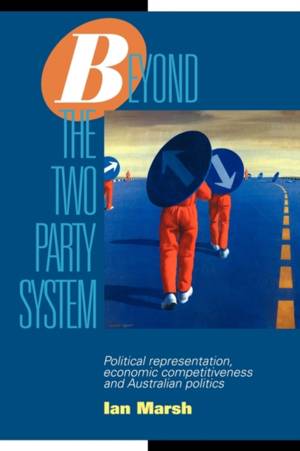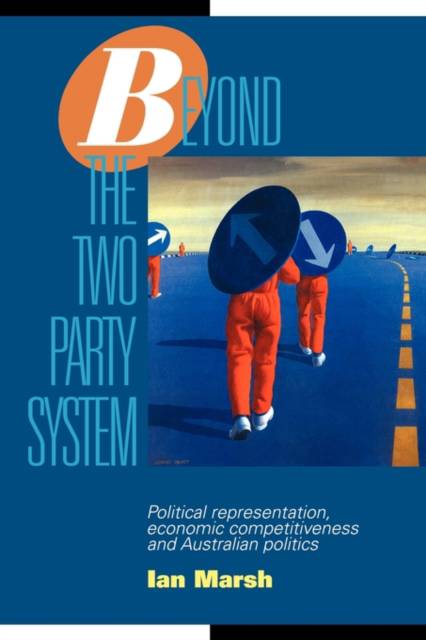
Bedankt voor het vertrouwen het afgelopen jaar! Om jou te bedanken bieden we GRATIS verzending (in België) aan op alles gedurende de hele maand januari.
- Afhalen na 1 uur in een winkel met voorraad
- In januari gratis thuislevering in België
- Ruim aanbod met 7 miljoen producten
Bedankt voor het vertrouwen het afgelopen jaar! Om jou te bedanken bieden we GRATIS verzending (in België) aan op alles gedurende de hele maand januari.
- Afhalen na 1 uur in een winkel met voorraad
- In januari gratis thuislevering in België
- Ruim aanbod met 7 miljoen producten
Zoeken
Beyond the Two Party System
Political Representation, Economic Competitiveness and Australian Politics
Ian Marsh
€ 60,95
+ 121 punten
Omschrijving
The demands placed on western governments have increased exponentially over the years, but the fundamental structure of most of these governments - the two party system - has not. Governments are not only required to be competitive in the global economy, but the societies they represent have changed, becoming culturally and ethnically diverse. Ian Marsh's challenging book suggests that the two party regime cannot accommodate these changing needs. It outlines the ways in which politics might change to meet these new demands and achieve genuine participatory democracy. The book explores the nature of citizenship from a historical perspective, proposing a definition of citizenship for the future. Ian Marsh argues that political learning will be central to the development of this new citizen, so that they, and not only the leadership elite, have genuine political input.
Specificaties
Betrokkenen
- Auteur(s):
- Uitgeverij:
Inhoud
- Aantal bladzijden:
- 424
- Taal:
- Engels
- Reeks:
Eigenschappen
- Productcode (EAN):
- 9780521467797
- Verschijningsdatum:
- 1/01/1995
- Uitvoering:
- Paperback
- Formaat:
- Trade paperback (VS)
- Afmetingen:
- 152 mm x 229 mm
- Gewicht:
- 616 g

Alleen bij Standaard Boekhandel
+ 121 punten op je klantenkaart van Standaard Boekhandel
Beoordelingen
We publiceren alleen reviews die voldoen aan de voorwaarden voor reviews. Bekijk onze voorwaarden voor reviews.









